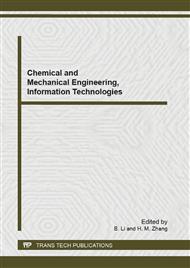p.2196
p.2201
p.2205
p.2211
p.2216
p.2220
p.2226
p.2230
p.2234
A Hybrid Knowledge-Base System Approach for Disaster Emergency and Relief Decision
Abstract:
Hybrid knowledge representation schemes, including production rules, object-oriented programming, and procedural methods, are employed to express expert heuristics and standard emergency knowledge during the development of the knowledge-based system (KBS) for emergency decision for disaster reduction. This approach renders it possible to take advantages of the characteristics of each method. The system can provide the user with advice on Preliminary plan evaluation, Plan optimization, Plan evaluation ,Plan summary and Miscellaneous.
Info:
Periodical:
Pages:
2234-2237
Citation:
Online since:
September 2013
Authors:
Price:
Сopyright:
© 2013 Trans Tech Publications Ltd. All Rights Reserved
Share:
Citation:


